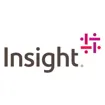About seQura
SeQura provides innovative, flexible and easy-to-use payments technologies that help merchant acquire, convert and retain more customers.
We make a differnece in sales performance by tailoring our solutions to different sectors, to address their unique pain points and deliver superior results in Retail, Education (EduQa), Opstics (OptiQa), Repairs and Travel.
We also empower smart shopping to consumer who seek more value, convenience, and flexibility in their shopping, with new payment experiences that allow them to save, access interest-free credit, or pay in small, comfortable instalments of up to 24 months.
Born in Barcelona, seQura is a privately-owned fintech in the scaleup phase. Present in southern Europe and Latin America, we are growing above 50% CAGR and approaching 100 Million in Annual Recurring Revenue. Over 5000 businesses, almost 2 million shoppers, and 300+ employees continue to rate us as one of the most loved and trusted fintechs out there, with an NPS of 87%, a Trustpilot rating of 4.7/5, and a Glassdoor rating of 4.7/5.
About the role 🤓
As a Platform Engineer in seQura, you will play a key role in evolving the existing infrastructure to a Platform product. You will join the team in charge of transforming the current systems (IaC, observability, CICD, security…) into a unified, scalable platform that empowers other tech teams' autonomy to deliver more efficiently and consistently.
This will involve abstracting infrastructure complexities, creating reusable components, and developing automation tools that can be leveraged across the organisation. By focusing on platformization, you will enable faster innovation cycles, reduce operational overhead, and help streamline the developer experience, ensuring that engineering teams can focus on building great products.
If you are passionate about cloud infrastructure, automation, and continuous improvement and enjoy solving complex problems, we would love to hear from you!
Our (current) stack 🔨
We manage AWS with Terraform and Atlantis and K8s with Helm and our CICD pipelines are supported by Jenkins, GithubActions and ArgoCD.
Our observability stack mixes Grafana and Prometheus for metrics, Elastic for logs, Jaeger/Tempo for traces and Sentry for errors.
Our languages include Ruby on rails, groovy and Python.





